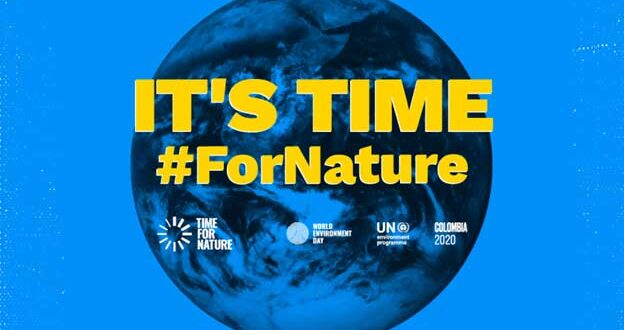OXFORD, UK, Nov 23 (IPS) – In the beginning of 2020, there have been hopes that this is able to be a ‘tremendous 12 months for nature’. It has not turned out that manner. Tropical forests, so essential for biodiversity, the local weather and the indigenous communities who stay in them, have continued to be destroyed at alarming charges. In truth, regardless of the shutdown of enormous components of the worldwide financial system, charges of deforestation globally have elevated since final 12 months.
The market forces driving deforestation are baked deep into the system of worldwide commerce. Agricultural growth for commodities corresponding to soy and palm oil accounts for 2 thirds of the issue worldwide. And forests are additionally being cleared to make manner for mining, and for infrastructure to hyperlink as soon as distant areas to the worldwide markets they provide.
Coal mining is estimated to have an effect on 1.74 million hectares of forest in Indonesia alone, with as a lot as 9 % of the nation’s remaining forests in danger from permits for brand spanking new mines. And the menace to forests from street constructing is critical, with 25 million kilometres of roads prone to be constructed by 2050, primarily in creating international locations.
Underpinning these industries is over a trillion a 12 months in financing from monetary establishments world wide. This funding and lending is the gas that retains the deforestation fires alight.
Six years in the past, governments, firms and civil society signed the New York Declaration on Forests, setting a aim to finish world deforestation by 2030. Every year, an independent civil society network led by Local weather Focus and together with World Cover offers a progress evaluation. This 12 months, it focuses on the NYDF targets of decreasing deforestation from mining and infrastructure by 2020 (aim three), and supporting options to deforestation for subsistence wants (aim four).
The findings are an pressing wake-up name. The menace to forests worldwide from these actions is rising, and indigenous individuals and native communities proceed to bear a devastating price.
However the report additionally highlights alternatives for progress. A rising variety of governments are dealing with as much as this subject and a few firms are waking as much as the dangers of inaction. The identical is true of the finance sector, which may develop into a driver of transformational change.
The chance for finance
Monetary establishments don’t, it have to be recognised, have an awesome observe file on these points. World Cover’s annual Forest 500 assessment of probably the most influential monetary establishments in agricultural and timber forest-risk provide chains has constantly discovered that almost all don’t publicly recognise a necessity to interact on the difficulty of deforestation.
Fewer nonetheless publish clear details about how they’ll cope with deforestation dangers recognized of their portfolios, and not one of the 150 monetary establishments assessed in 2019 had insurance policies throughout all related human rights points. In consequence, funding and lending has largely continued to stream to firms linked to land grabs and deforestation.
Almost 87% of indigenous territories within the Amazon are recognised in Brazilian regulation, but authorities concessions for mining and oil extraction overlap practically 24% of recognised territories. This infringement of the communities’ rights is being neglected by the businesses concerned, and by the monetary establishments that finance them.
But there are indicators of change. In June this 12 months a gaggle of 29 investors requested conferences with the Brazilian authorities due to considerations concerning the fires raging within the Amazon. Some, together with BlackRock, have stated they’ll have interaction with the businesses they finance on deforestation dangers. And a few have gone additional, with Citigroup, Normal Chartered, and Rabobank disinvesting from Indonesian meals big Indofood following considerations about deforestation linked to palm oil, and Nordea Asset Administration dropped investments in Brazilian meat big, JBS.
There may be additionally help for the Equator Principles, which give a framework for banks and buyers to evaluate and handle social and environmental dangers in mission finance. Corporations within the mining and extractive sectors are among the many 110 monetary establishments to have signed up, though reporting on implementation is voluntary and patchy.
There may be additionally rising recognition that biodiversity loss represents a danger to investments. Greater than 30 monetary establishments have joined an informal working group to develop a Job Power for Nature-related Disclosure (TNFD), supposed to assist monetary establishments shift finance away from damaging actions corresponding to deforestation. Some throughout the sector are creating new influence funding merchandise designed to help poverty alleviation and sustainable growth.
And there are additionally indicators of a shift in growth banks – whose finance performs such a crucial function in so many growth initiatives within the World South. Simply this month, public growth banks from world wide made a joint declaration to help the transformation of the worldwide financial system and societies towards sustainable and resilient growth
.
No silver bullets
It’s in fact one factor to recognise the issue, one other to unravel it. Reworking the finance sector so that cash is moved away from mining or agricultural initiatives linked to deforestation, and invested in sustainable options that profit native communities is a gigantic problem – made all of the tougher by the dearth of transparency that at the moment engulfs these sectors.
For whereas the banks and buyers funding deforestation actions are all too typically invisible to the native communities and indigenous teams on the bottom, these communities, and the impacts of monetary investments on their land and livelihoods are equally invisible or ignored.
However these hyperlinks are more and more being introduced into the sunshine, and new instruments and applied sciences are bringing a brand new stage of transparency and accountability. The brand new Trase Finance instrument is a good instance, it maps the deforestation dangers for buyers linked to Brazilian soy and beef, and Indonesian palm oil, and goals to increase protection to incorporate half of main forest-risk commodities by subsequent 12 months. Bringing a couple of new period of radical transparency could possibly be the important thing for shifting past recognition and into actual options.
Elevated transparency brings with it higher accountability, creating a possibility for native communities to establish the monetary establishments concerned, and a reputational danger for monetary establishments linked to infringements of land rights.
Grassroots actions can play an vital function in demanding accountability from the businesses and monetary establishments concerned the place land rights are affected. Campaigns can increase consciousness with the broader public, making a reputational danger for the businesses concerned, and for the monetary establishments that finance them. Campaigners have focused BlackRock for its investments in JBS, for instance, pushing for higher motion from the investor.
Governments in shopper international locations are additionally more and more how they’ll cut back their publicity to deforestation in imported merchandise, with each the European Union and UK proposing necessary due diligence for firms, requiring far higher transparency from all concerned. These measures ought to be strengthened to incorporate due diligence on human rights.
A worldwide drawback
We’re all implicated in tropical deforestation – as customers, as pension-fund holders, as residents. Within the World North, economies depend on commodities produced in creating and rising economies, enabled by manufacturing practices linked with deforestation.
Regardless of world commitments from a rising variety of governments, firms and monetary establishments, the cash and energy being directed in direction of damaging growth far exceeds the efforts being made to help sustainable livelihoods. Now we have not, as a world neighborhood managed to place the brakes on the juggernaut of unsustainable financial growth.
To satisfy the NYDF aim of ending deforestation by 2030, in addition to local weather targets underneath the Paris Settlement, this should change urgently, and the finance sector is essential to creating this occur.
Follow @IPSNewsUNBureau
Follow IPS New UN Bureau on Instagram
© Inter Press Service (2020) — All Rights ReservedOriginal source: Inter Press Service
 Top Naija News: Nigerian News, Breaking News Nigeria and World News Top Naija News is a daily news publication in Nigeria, delivering the latest breaking news in Nigeria and around the world.
Top Naija News: Nigerian News, Breaking News Nigeria and World News Top Naija News is a daily news publication in Nigeria, delivering the latest breaking news in Nigeria and around the world.




